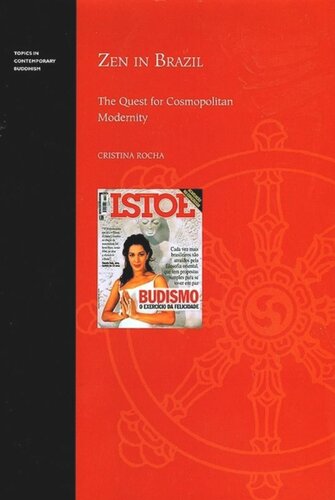

Most ebook files are in PDF format, so you can easily read them using various software such as Foxit Reader or directly on the Google Chrome browser.
Some ebook files are released by publishers in other formats such as .awz, .mobi, .epub, .fb2, etc. You may need to install specific software to read these formats on mobile/PC, such as Calibre.
Please read the tutorial at this link: https://ebookbell.com/faq
We offer FREE conversion to the popular formats you request; however, this may take some time. Therefore, right after payment, please email us, and we will try to provide the service as quickly as possible.
For some exceptional file formats or broken links (if any), please refrain from opening any disputes. Instead, email us first, and we will try to assist within a maximum of 6 hours.
EbookBell Team

4.8
84 reviewsWidely perceived as an overwhelmingly Catholic nation, Brazil has experienced in recent years a growth in the popularity of Buddhism among the urban, cosmopolitan upper classes. In the 1990s Buddhism in general and Zen in particular were adopted by national elites, the media, and popular culture as a set of humanistic values to counter the rampant violence and crime in Brazilian society. Despite national media attention, the rapidly expanding Brazilian market for Buddhist books and events, and general interest in the globalization of Buddhism, the Brazilian case has received little scholarly attention. Cristina Rocha addresses that shortcoming in Zen in Brazil. Drawing on fieldwork in Japan and Brazil, she examines Brazilian history, culture, and literature to uncover the mainly Catholic, Spiritist, and Afro-Brazilian religious matrices responsible for this particular indigenization of Buddhism. In her analysis of Japanese immigration and the adoption and creolization of the Sôtôshû school of Zen Buddhism in Brazil, she offers the fascinating insight that the latter is part of a process of "cannibalizing" the modern other to become modern oneself. She shows, moreover, that in practicing Zen, the Brazilian intellectual elites from the 1950s onward have been driven by a desire to acquire and accumulate cultural capital both locally and overseas. Their consumption of Zen, Rocha contends, has been an expression of their desire to distinguish themselves from popular taste at home while at the same time associating themselves with overseas cultural elites.